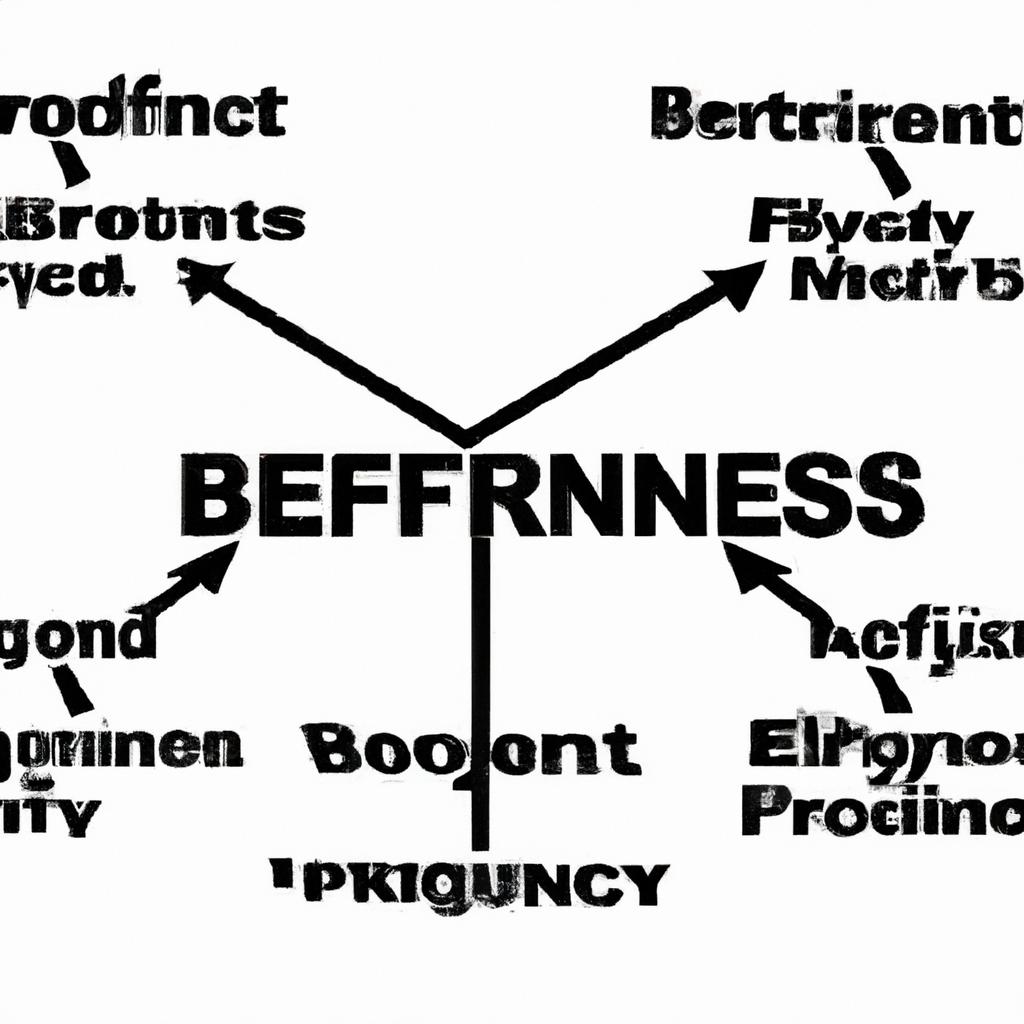In the realm of real estate law, the concept of ownership in severalty stands as a fundamental pillar in understanding property rights. When a property is held in severalty, it is owned by one individual or corporation, separate and distinct from any other parties. As experienced practitioners in the fields of estate planning and property law, the Morgan Legal Group of New York City navigates the complexities of ownership in severalty with precision and expertise. Join us as we delve into the nuances of this pivotal concept and explore its implications in the realm of property ownership.
Understanding Ownership in Severalty in Property Law
In property law, ownership in severalty refers to when a property is owned by a single individual or entity. This type of ownership is not shared with any other party, giving the owner full control over the property and the right to make decisions about its use and management without the consent of others. Here are some key points to understand about ownership in severalty:
- Exclusive Control: The owner in severalty has the exclusive right to possess, use, and transfer the property without interference from others.
- Liability: The owner in severalty is solely responsible for any debts, taxes, or liabilities associated with the property.
| Aspect | Description |
|---|---|
| Decision-Making | The owner in severalty has the authority to make all decisions regarding the property. |
| Inheritance | Upon the owner’s death, the property will pass according to their estate plan or local laws. |
Overall, ownership in severalty provides individuals with a clear and defined legal framework for managing their property rights. It is important to consult with a legal professional to fully understand the implications of this type of ownership and ensure that your property interests are protected.

Implications of Sole Ownership in Real Estate Transactions
When a property is owned in severalty, it means that it is owned by a single individual. This form of ownership in real estate transactions has several implications that individuals should be aware of before entering into such agreements. Some of the key implications of sole ownership include:
- Full Control: The owner has full control over the property and can make decisions regarding its use, maintenance, and sale without needing approval from anyone else.
- Liability: The owner is solely responsible for any liabilities associated with the property, including debts, taxes, and legal issues.
- Succession: In the event of the owner’s death, the property will pass according to their estate plan or the laws of intestacy if no plan is in place.
It is important for individuals considering sole ownership in real estate transactions to carefully consider these implications and seek legal advice to ensure they understand the responsibilities and risks involved. At Morgan Legal Group, our team of experienced attorneys can provide guidance and assistance in navigating the complexities of real estate transactions and ensuring that our clients’ interests are protected.

Benefits and Risks of Holding Property in Severalty
When a property is held in severalty, it means that it is owned by a single individual. This type of ownership structure offers certain benefits and risks that should be carefully considered. One of the primary benefits of holding property in severalty is the simplicity of decision-making. As the sole owner, you have the autonomy to make all decisions regarding the property without having to consult or gain approval from other co-owners.
However, there are also risks associated with holding property in severalty. One major risk is the lack of diversification in your investment portfolio. If the property loses value or incurs unexpected expenses, you bear the full financial burden on your own. Additionally, if you pass away without a clear plan for the property’s transfer, it may be subject to probate and potentially lengthy court proceedings before it can be inherited by your heirs.

Key Considerations for Individuals Considering Owning Property Individually
When it comes to owning property individually, there are several key considerations that individuals must keep in mind. One important aspect to understand is that ownership in severalty means a property is owned by one individual only. This type of ownership can have both advantages and disadvantages, depending on the circumstances.
Some include:
- Decision-making: As the sole owner of the property, you have complete control over all decisions related to the property.
- Liability: You are personally responsible for any liabilities or debts associated with the property.
- Succession planning: It is important to consider how the property will be passed down to heirs in the event of your passing.
- Tax implications: Owning property individually can have tax consequences that should be carefully considered.
Q&A
Q: What does ownership in severalty mean?
A: Ownership in severalty refers to when an individual holds sole ownership of a property, meaning they have exclusive rights to use and possess it.
Q: How is ownership in severalty different from joint tenancy or tenancy in common?
A: Unlike joint tenancy or tenancy in common where multiple individuals share ownership rights, ownership in severalty means a property is owned by one person only.
Q: What are some advantages of owning property in severalty?
A: Owning property in severalty can provide the owner with full control and decision-making power over the property without needing to consult or seek approval from others.
Q: Are there any disadvantages to owning property in severalty?
A: One potential disadvantage of owning property in severalty is that the owner bears full responsibility for all expenses and liabilities associated with the property without the ability to share the burden with others.
Q: Can ownership in severalty be converted to joint ownership later on?
A: Yes, ownership in severalty can be converted to joint ownership through legal processes such as adding co-owners to the property title or creating a joint tenancy agreement.
Concluding Remarks
In conclusion, ownership in severalty denotes a property that is solely owned by one individual or entity. This form of ownership offers clear-cut decision-making power and control over the property, but also entails a heightened level of responsibility and financial obligation. Whether it be a small parcel of land or a grand estate, the concept of ownership in severalty underscores the significance and privileges bestowed upon the sole owner. Ultimately, the choice to hold property in severalty lies in the hands of the owner, who must weigh the benefits and drawbacks of this unique form of ownership.
 The concept of property ownership is a fundamental aspect of the real estate market. It refers to the legal and ethical rights an individual or a group holds over a tangible or intangible asset, which can be used, controlled, or transferred according to their wishes. When it comes to real estate, ownership can take various forms, including joint tenancy, tenancy in common, and ownership in severalty. In this article, we will delve into what ownership in severalty means and how it differs from other forms of property ownership.
The concept of property ownership is a fundamental aspect of the real estate market. It refers to the legal and ethical rights an individual or a group holds over a tangible or intangible asset, which can be used, controlled, or transferred according to their wishes. When it comes to real estate, ownership can take various forms, including joint tenancy, tenancy in common, and ownership in severalty. In this article, we will delve into what ownership in severalty means and how it differs from other forms of property ownership.
What Does Ownership in Severalty Mean?
Ownership in severalty, also known as sole ownership, is a type of property ownership where an individual or a legal entity holds the rights to a property solely and individually. It means that the owner has full control over the property, without any co-owners or partners to share the ownership rights. In simpler terms, it is just like owning a property all by yourself.
In ownership in severalty, the owner has the sole responsibility for managing and maintaining the property. They also have the right to use, develop, and transfer the property as they see fit, without any interference from co-owners. This form of ownership is common in single-family homes and small businesses.
Difference Between Ownership in Severalty and Other Forms of Property Ownership
There are three main forms of property ownership – joint tenancy, tenancy in common, and ownership in severalty. The primary difference between these forms lies in the way the ownership rights are divided, and the legal authorities of the co-owners.
In joint tenancy, two or more individuals hold equal shares of the property, which cannot be divided. If one of the co-owners passes away, the surviving owner(s) automatically inherit the deceased owner’s share of the property, without going through probate. This form of ownership is commonly seen among family members or partners.
Tenancy in common, on the other hand, allows each co-owner to hold different portions of the property, which can be transferred or inherited to other individuals through a will. However, unlike joint tenancy, there is no right of survivorship in tenancy in common. This means that if one of the co-owners passes away, their share will be passed on to whoever is mentioned in their will.
Ownership in severalty differs from both these forms, as it allows only one individual to hold the entire property. This means that the owner has full control over the property and can transfer or inherit the property without any restrictions or conflicts.
Benefits of Ownership in Severalty
Now that we understand what ownership in severalty means let’s take a look at some of its benefits.
1. Easy Decision-Making Process
Since there are no co-owners in ownership in severalty, all decisions regarding the property can be made by the sole owner. This eliminates the need for constant communication and consensus among co-owners, making the decision-making process much more efficient and hassle-free.
2. Liability Protection
Another advantage of ownership in severalty is that the sole owner has limited liability for any debts or legal issues arising from the property. This means that if any legal action is taken against the property, only the owner’s personal assets will be at risk, unlike in joint tenancy, where all co-owners are liable.
3. Flexibility and Control
Ownership in severalty also offers a great deal of flexibility and control over the property. The owner can make changes, renovations, or improvements without having to consult with other co-owners. This can be particularly beneficial for property owners who have specific plans for their property and do not want to be restricted by the opinions of others.
4. Better Property Management
As the sole owner, you have complete authority over the property’s management and can make decisions that align with your goals and vision for the property. This allows for better management practices and can potentially increase the property’s value over time.
Practical Tips for Owning Property in Severalty
If you are considering ownership in severalty, here are some practical tips to keep in mind:
1. Understand Local Laws and Regulations
Before purchasing a property in severalty, it is crucial to research and understand the local laws and regulations regarding single ownership. Some states have specific laws and requirements for sole ownership, and it is essential to be aware of them to avoid any legal issues.
2. Obtain Property Insurance
As the sole owner, it is crucial to protect your property against any unforeseen events like natural disasters, accidents, or property damage. Make sure to obtain adequate property insurance to safeguard your investment.
3. Plan for the Future
In the event of your passing, it is essential to have a plan in place for transferring the property to your desired beneficiaries. Consider drafting a will and seeking legal advice on how to effectively pass on your property without any conflicts.
In Conclusion
Ownership in severalty offers a unique set of benefits and can be a viable option for individuals who want full control and autonomy over their property. It is important to carefully consider all the aspects of ownership before making a decision and seek professional guidance if needed. Overall, understanding the concept of ownership in severalty can help property owners make informed decisions and manage their assets more effectively.






